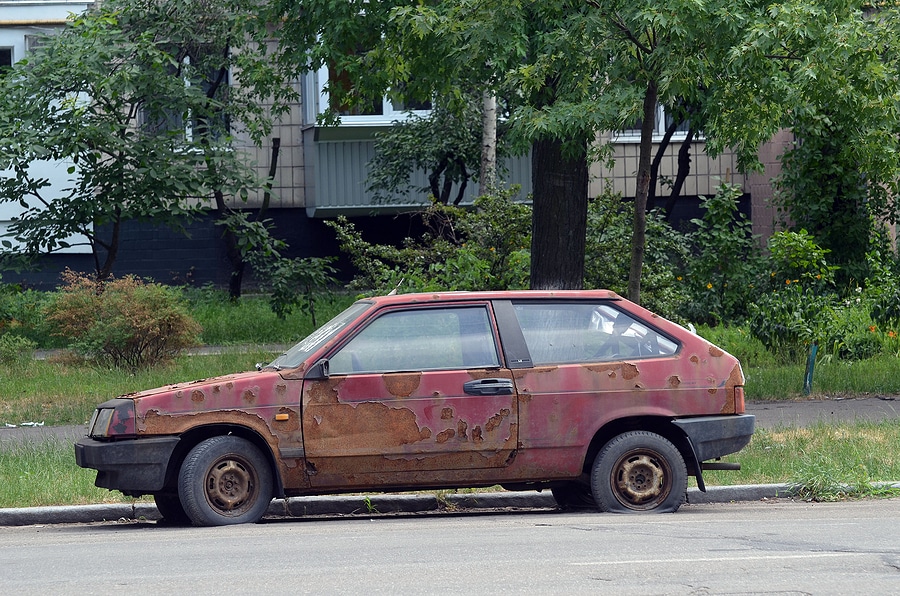Sell My Junk Car Today: Immediate Uses for Your Automobile
Sell My Junk Car Today: Immediate Uses for Your Automobile
Blog Article
The Financial and Environmental Benefits of Recycling Scrap Automobiles
Recycling scrap cars and trucks presents various economic and ecological advantages that extend well past waste reduction. By redeeming as much as 90% of lorry parts, this technique considerably lessens land fill worry while protecting essential natural resources. It cuts down on power use and greenhouse gas exhausts connected to raw product removal and manufacturing. The procedure additionally creates employment possibility across various fields, from taking apart to logistics, and gives consumers with cost-efficient car components. These advantages underscore the complex value of reusing scrap cars, yet there are further aspects to think about when assessing its full impact.
Minimizing Garbage Dump Waste
Lowering land fill waste through the recycling of scrap cars and trucks plays a critical function in environmental conservation. When cars reach completion of their life process, efficient recycling processes can dramatically reduce the volume of waste that ends up in landfills. Junk vehicles, otherwise appropriately recycled, add to the expanding trouble of garbage dump overcapacity, worsening environmental deterioration and possibly infecting soil and groundwater with dangerous materials such as oil, gas, and heavy metals.

Additionally, the reusing procedure alleviates the negative results of vehicle waste on biodiversity. Land fills are well-known for interfering with regional communities, and lowering the increase of junk vehicles aids maintain all-natural environments. Ultimately, recycling scrap vehicles is a calculated approach that cultivates lasting waste administration, aligning with more comprehensive environmental objectives.
Conserving Natural Resources
In enhancement to mitigating garbage dump overcapacity, recycling junk cars plays a considerable function in preserving all-natural resources. The automobile sector is heavily dependent on various metals, plastics, and other products that need comprehensive mining and handling. By reusing scrap cars and trucks, we substantially minimize the need for raw materials, therefore suppressing the ecological destruction associated with mining tasks. As an example, recycling steel from old automobiles minimizes the necessity for iron ore extraction, which subsequently decreases energy consumption and greenhouse gas exhausts.
Additionally, the procedure of recycling vehicle parts such as lead, copper, and light weight aluminum is far much less energy-intensive than producing these materials from virgin resources. This power cost savings translates straight right into minimized nonrenewable fuel source usage and reduced carbon impacts (sell car to junkyard). In addition, by reclaiming and repurposing products, we expand the lifecycle of non-renewable sources, guaranteeing they stay readily available for future usage
In addition, recycling automobile fluids like antifreeze, oil, and transmission liquid protects against dangerous materials from contaminating dirt and water sources. Through methodical reusing initiatives, these liquids can be cleansed and reused, advertising a circular economic situation and further diminishing the strain on all-natural sources. Hence, reusing junk cars and trucks provides a complex strategy to preserving our world's invaluable all-natural properties.
Developing Task Opportunities
The recycling of junk cars and trucks not only benefits the atmosphere but additionally promotes economic development by creating task possibilities. This burgeoning sector offers a vast variety of work prospects, varying from the first collection and transport of old automobiles to the intricate processes of taking apart, sorting, and repurposing the various components.

The proliferation of reusing plants additionally enhances the job market, requiring functions such as engineers, device operators, and quality assurance professionals to make certain and manage the innovative machinery compliance with ecological regulations. Also management settings, such as sales, advertising and marketing, and customer support, see a surge as the market increases.
Decreasing Production Costs
By incorporating recycled products from scrap cars and trucks, makers can considerably decrease production expenses. The power required to refine recycled materials is considerably much less than that needed to create brand-new materials from scrape.
Furthermore, the reusing procedure assists simplify the supply chain by giving a stable influx of products that are conveniently available and frequently less expensive than newly extracted resources. These expense performances are specifically essential in a very affordable market like automotive production, where margins can be razor-thin. In addition, the recycling of scrap cars and trucks assists mitigate the unstable pricing of resources, allowing producers to far better projection and control their manufacturing spending plans.
Supplying Budget Friendly Car Components
When scrap vehicles are reused, the accessibility of economical vehicle parts significantly boosts, benefiting both customers and repair service shops. Recycled auto parts are often cost a fraction of the expense of new parts, giving an economical alternative for automobile proprietors and mechanics. This price can be important for people that may not have the economic ways to purchase new parts, allowing them to her explanation preserve their lorries in secure and functional problem.
Repair shops also gain from this raised accessibility of economical components. By sourcing recycled components, these businesses can lower their operational costs, which can be handed down to customers via reduced service fee. This, consequently, can lead to greater consumer complete satisfaction and commitment, as customers appreciate the cost financial savings without compromising on quality.
Furthermore, the quality of recycled parts has boosted significantly throughout the years, thanks to improvements in reusing processes and quality assurance actions. Numerous recycled components undertake rigorous testing to guarantee they fulfill market criteria, using reliability comparable to new parts - we buy junk cars Denver. By providing a top notch and financially practical choice, the recycling of junk autos plays a crucial duty in sustaining both the auto fixing industry and the wider consumer market
Final Thought
Recycling junk cars presents substantial economic and ecological advantages by substantially minimizing land fill waste and saving natural sources. This method decreases producing prices by reclaiming approximately 90% of automobile components, hence decreasing energy usage and greenhouse gas discharges. In addition, it creates employment possibility throughout various industries and materials cost effective vehicle parts, bolstering the automobile repair work industry. On the whole, the recycling of scrap vehicles sustains both economic growth and sustainability purposes.
Reusing scrap cars provides countless economic and ecological advantages that prolong well beyond waste decrease. Scrap cars, if not effectively recycled, contribute to the expanding trouble of garbage dump overcapacity, intensifying ecological deterioration and potentially contaminating soil and groundwater with harmful compounds such as oil, gas, and heavy steels.
By recycling scrap cars and scrap cars for cash trucks, we dramatically reduce the need for raw materials, therefore suppressing the ecological degradation associated with mining tasks.When junk automobiles are reused, the accessibility of budget-friendly car parts considerably enhances, profiting both customers and repair stores.Reusing scrap automobiles presents significant financial and environmental benefits by substantially minimizing garbage dump waste and conserving all-natural resources.
Report this page